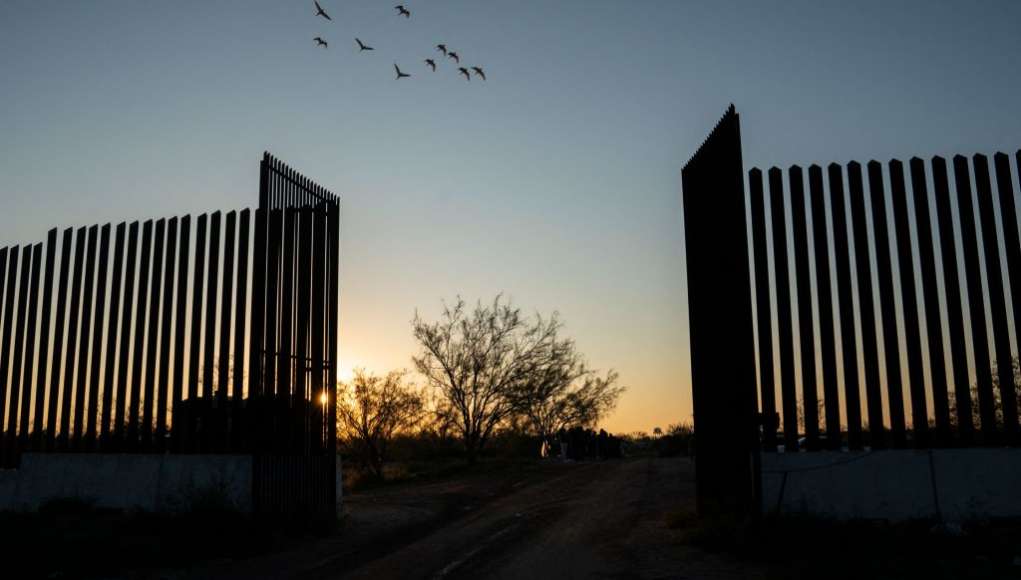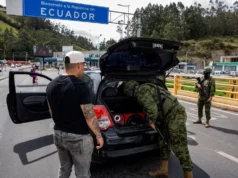The US has announced plans to open new migrant processing centres in Colombia and Guatemala as part of efforts to reduce undocumented immigration.
The regional facilities will process thousands of claims a month, with pathways for legal migration expanded.
The number of deportations for those ineligible to be in the US will also be doubled or tripled.
The US is bracing for a spike in undocumented immigration when Covid-era processing rules end in May.
The processing centres will allow successful applicants to enter the US legally and improve their access to assistance such as refugee resettlement processing and family reunification.
Between 5,000 and 6,000 people are expected to be processed a month but this will be scaled up. Spain and Canada have also agreed to take a number of those applying.
US officials on Thursday also announced plans to double or triple the number of deportation flights to some countries.
Those who try to reach America illegally by sea will now also not be eligible for parole, allowing them to temporarily live and work in the US.
These latest measures come weeks before the planned lifting of Title 42, which was introduced during the Trump administration and gave immigration agents the right to immediately deport undocumented migrants before they could register an asylum request.
The policy is expected to end on 11 May after being delayed.
“Notwithstanding those preparations, we do expect that encounters at our southern border will increase as smugglers are seeking to take advantage of this change and already are hard at work spreading disinformation that the border will be open after that,” US Secretary of State Antony Blinken said.
President Joe Biden has been under intense pressure to deal with the high number of undocumented migrants caught crossing the US-Mexico border.
About 200,000 undocumented migrants attempt to enter the US each month, recent government records show.
Earlier this year, Mexico agreed to accept thousands more deportees from the US after the Biden Administration said 30,000 Haitians, Cubans, Venezuelans, and Nicaraguans would be granted entry each month on humanitarian visas provided they applied through the correct immigration pathways.
Also on Thursday, the International Rescue Committee said more than nine in 10 Haitians seeking asylum in Mexico lacked basic necessities such as food and medical supplies.
Language barriers, discrimination, and a lack of space mean accessing shelter is difficult, leaving many displaced Haitians to live on the streets or in makeshift camps. The aid agency said nearly half need help to afford food.
Mexico’s refugee agency says asylum claims by Haitians are on track to surpass the 52,000 records of 2021. Tens of thousands of people have fled Haiti in recent months as it has descended into lawlessness and violence.










